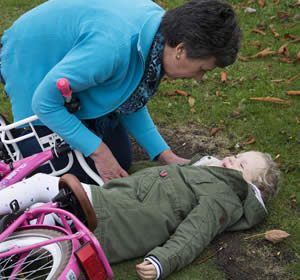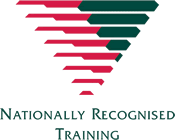HLTAID012- Provide First Aid
This unit describes the skills and knowledge required to provide a first aid response to a casualty.
Who can do this course?
The unit applies to all workers who may be required to provide a first aid response in a range of situations, including community and workplace settings.
Course Hours: 18 hours
What you will learn:
The candidate must show evidence of the ability to complete tasks outlined in elements and performance criteria of this unit, manage tasks and manage contingencies in the context of the job role.
There must be evidence that the candidate has completed the following tasks in line with state/territory regulations, first aid codes of practice, Australian Resuscitation Council (ARC) guidelines and workplace procedures:
- Followed DRSABCD in line with ARC guidelines, including:
- performed at least 2 minutes of uninterrupted single rescuer cardiopulmonary resuscitation (CPR) (5 cycles of both compressions and ventilations) on an adult resuscitation manikin placed on the floor
- performed at least 2 minutes of uninterrupted single rescuer CPR (5 cycles both compressions and ventilations) on an infant resuscitation manikin placed on a firm surface
- responded appropriately in the event of regurgitation or vomiting
managed the unconscious breathing casualty - followed single rescue procedure, including the demonstration of a rotation of operators with minimal interruptions to compressions
- followed the prompts of an Automated External Defibrillator (AED)
- Responded to at least two simulated first aid scenarios contextualised to the candidate's workplace/community setting, including:
- conducted a visual and verbal assessment of the casualty
- demonstrated safe manual handling techniques
- post-incident debriefs and evaluation
- provided an accurate verbal or written report of the incident
- Applied first aid procedures for the following:
- allergic reaction
- anaphylaxis
- bleeding control
- choking and airway obstruction
- envenomation, using pressure immobilisation
- fractures, sprains and strains, using arm slings, roller bandages or other appropriate immobilisation techniques
- respiratory distress, including asthma
- shock
What you will need?
- a computer to participate in online learning
- Obtain a Unique Student Identifier (USI)
- Provide a valid ID with his/her picture and signature
For more course information, fees and refunds, extensions, appeals, and our policies and procedures, download the Student Handbook


